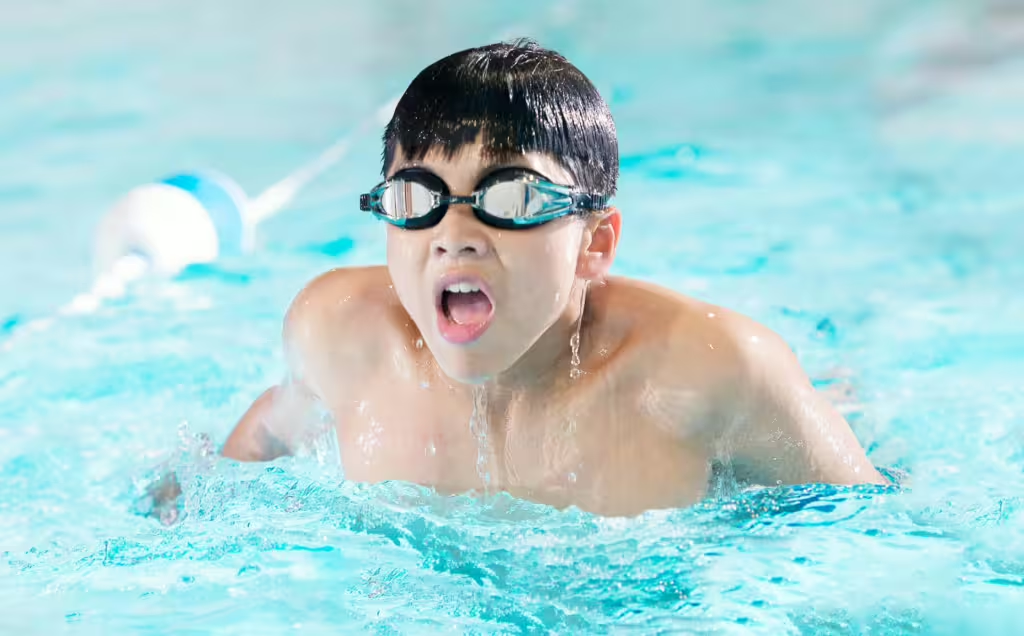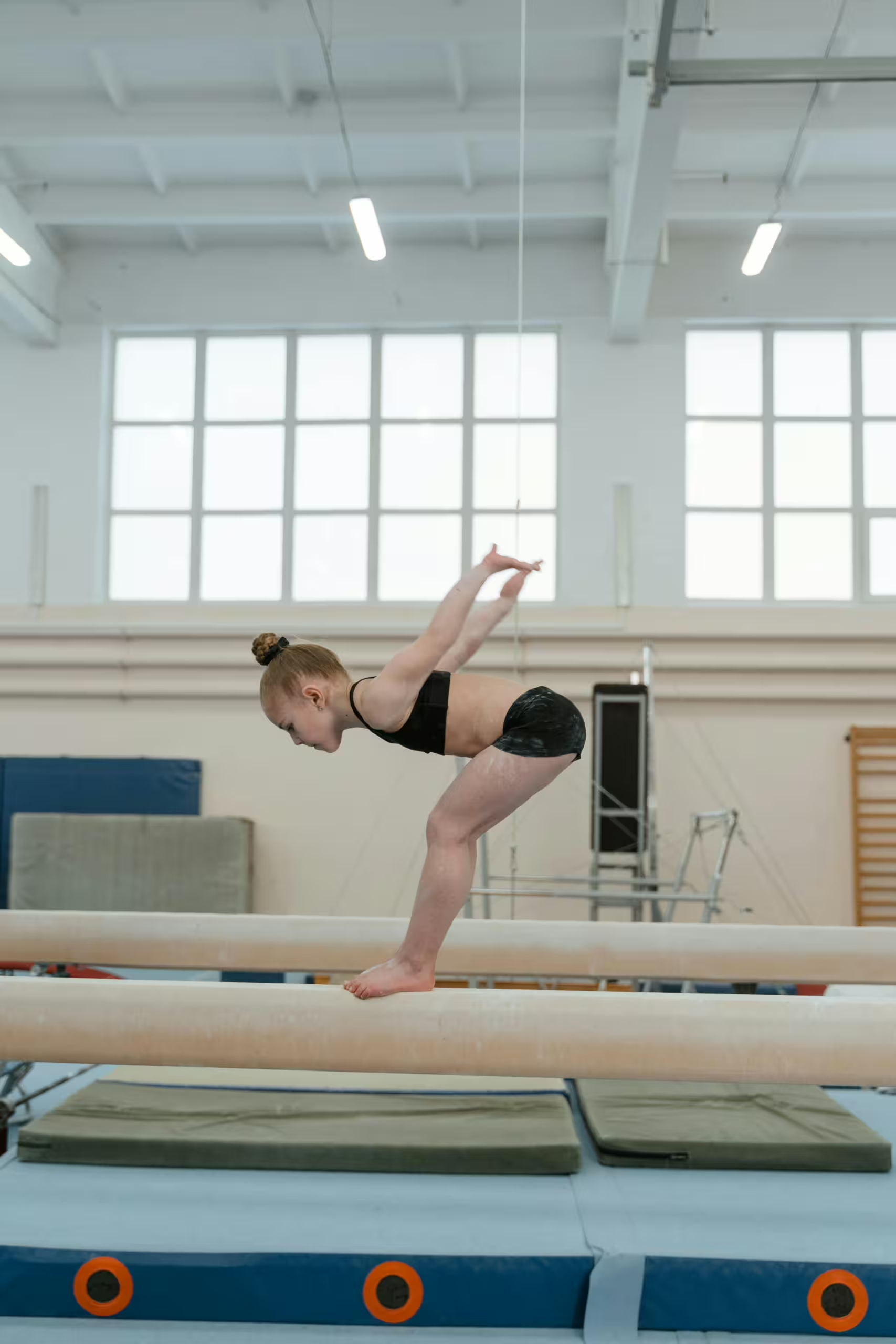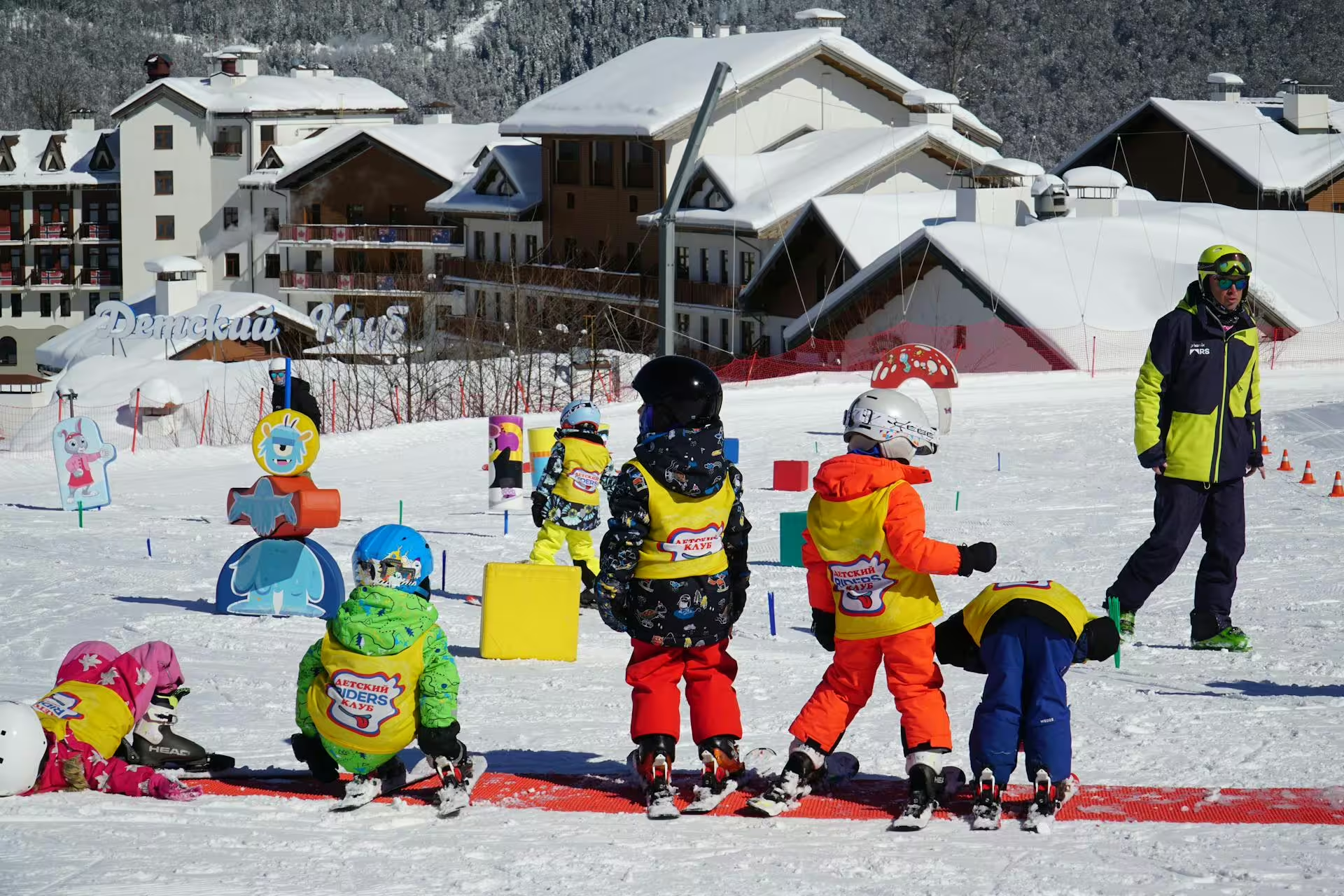When it comes to sports activities that we believe will benefit children the most, swimming almost always floats its way to the top of the list. For many families, specifically those who live near bodies of water or who themselves engage in frequent water-based activities, teaching children to swim is an absolute necessity. Beyond the necessity, however, swimming is just plain good for kids to learn.
Swimming provides children with physical, mental, and emotional benefits, from improved cardiovascular health to increased courage and self-confidence. Swimming, in and of itself, is easy enough, but swimming as a sport is a bit different. As with any sports activity, success in swimming requires dedication, practice, and the right kind of support from an athlete’s parents. This is why, as a parent of a young swimmer, you will play a crucial role in shaping that child’s swimming experience.
In this article, we will provide parents with a slew of helpful tips and strategies they can use to support their young swimmer—from encouraging practice and perseverance to managing competitions and meets. At the same time, we will ensure that you can provide the best support possible to your child, whether they are just starting out or if they are already moving to higher levels of competition.
Setting the Right Foundation: Encouraging Early Involvement
The first step in nurturing a child’s swimming journey is encouraging early involvement. This is fairly easy, since parents themselves are generally encouraged to get their child in the water and learning to swim as early as the first year of life. Plenty of infant and toddler swimming programs exist to help with this, but parents who are confident swimmers can do this on their own terms if they have the right facilities, safety equipment, and safety training to do so. Bear in mind that most youth swimming programs employ trained professionals to teach children; people who know how to perform emergency resuscitation in the event of an accident.
In addition to starting them as early as possible to build the basics, the next step is to encourage them to swim as a sport, but to do so without overwhelming them. Remember, just because swimming doesn’t involve specialized balls, uniforms, or equipment, doesn’t mean it’s not an organized sport. Despite this distinct lack of peripherals, swimming, as with any sport, is actually a huge commitment on the part of the parent and the child. Parents need to prepare their children for the inevitability of being present for practice, team discussions, and swim meets.
Once your child agrees, the nest step is to try and strike a balance between pushing your child to improve and ensuring they enjoy the process. Swimming can get competitive but that doesn’t mean that it has to be a slog. It can be quite fun, in fact, if parents know how to foster a love of it within their own child.
Fostering a Love for Swimming

Most swimming beginners start with simple lessons before they move on to swim team tryouts. If your child is new to swimming, focus on making the experience fun and enjoyable first, before adding competitive elements. Here are some ways to go about that:
Be Positive About Water: Encourage kids to enjoy their time in the water. Whether it’s splashing around at the family pool, building sand castles in the surf, or simply playing water games in the backyard, building up a child’s confidence in the water is the first and most important step in the process. You cannot skip the fun and comfort step, people! Doing this will not only ensure that the child feels comfortable while in the water, it will make certain that they continue to feel that way even as they begin formal lessons or practices.
Celebrate the Small Wins: Remember that children thrive on positive reinforcement. The more praise you give your child about their swimming successes, the better they will feel about the whole thing. For instance, if your child swims across the pool for the first time or learns a new stroke, take time to celebrate their achievements! Encouraging progress, no matter how small, boosts a kid’s confidence and helps them develop a love for their sport.
Make Swimming a Family Activity: If time and opportunity permits, always try to enjoy family swim time. Doing this will give your child the chance to see that swimming can be a fun, social, and rewarding activity for everyone; even their parents! It also creates a rare opportunity for you to bond with your child on a shared interest, something that may become more and more infrequent as they grow up.
Finding the Right Program or Team
This is another important step. Choosing the right swim team or program is crucial for introducing your child to something they will eventually dedicate time and effort to. If your child is just starting or has just left the peewee level of swimming instruction, remember that many swim teams offer lessons that cater to beginners. As your child’s skills progress, the team may even choose to move them into more competitive levels of the program. This will ultimately be up to you and your child, of course, but its important to ask your swim organization about how things work before enrolling into the program. Pay attention to the following:
Age-Appropriate Programs: Make sure that the swim team or lessons cater to different ages and that what your child is learning is appropriate to their age group. Bear in mind that while some teams specialize in competitive swimmers, others might place greater focus on skill development. A good bet is to seek out program that offers a combination of both.
Enthusiastic Coaches: Look for a team with coaches who are just as passionate about swimming as you have tried to be for your child. The best coaches know how to foster a positive and supportive environment for the kids in their care. It’s a good idea to look for a coach who balances fun with training, as this can be very helpful in helping young swimmers stay motivated.
Safety First: This should go without saying, but always do your research before you get involved. Ensure that the program you chose emphasizes water safety and offers lifeguards or instructors certified in CPR and first aid. Accidents happen and it pays to be prepared.
Encouraging Consistency and Perseverance
Once your child is committed to swimming, the next step is helping them stay consistent. This is important because it ensure that their training advances properly. At the same time, consistency is a vital component of a child learning resilience in sports, namely, how to persevere when things get tough. Swimming, like any other sport, can be challenging at times, and it’s common for young swimmers to encounter obstacles such as plateaus in progress. Even if they excel at multiple facets of the sport, they may still face small moments of frustration from time to time.
Encouraging Consistency in Training
Consistency is key to improving in any sport, swimming included. To help your child stay on track you should:
Create a Routine: Establish and remember to keep to a consistent schedule for swim practices and competitions. Kids actually do quite well with routines. A consistent schedule creates stability and helps children feel more secure in their sports development.
Set Realistic Goals: Parents should work with their children and their coach to set both short-term and long-term goals; realistic ones, mind you! Remember that a realistic approach is essential, especially at the beginning stages, in order to avoid frustration. Setting achievable goals provides much-needed motivation and delivers a sense of accomplishment for young athletes when they meet their milestones.
Focus on Skill Development: Emphasize the importance of building skills rather than focusing only on winning. Competition might be the name of the game at higher levels, but it cannot be the only motivator for a child’s involvement in sports. Whether your child is learning a new stroke or working on endurance, skill improvement is bound to be an ongoing process, so make it their main focus.
Practice at Home: Even when there’s no practice, small activities at home can help your swimmer to do better. Stretching, dryland exercises, and even mental preparation can all be done outside of the pool. If you happen to have a backyard pool, you can give them practice exercises or play water games to improve the basics. Either way, exercises like these can do a lot to strengthen muscles and reinforce a swimmer’s commitment to their sport.
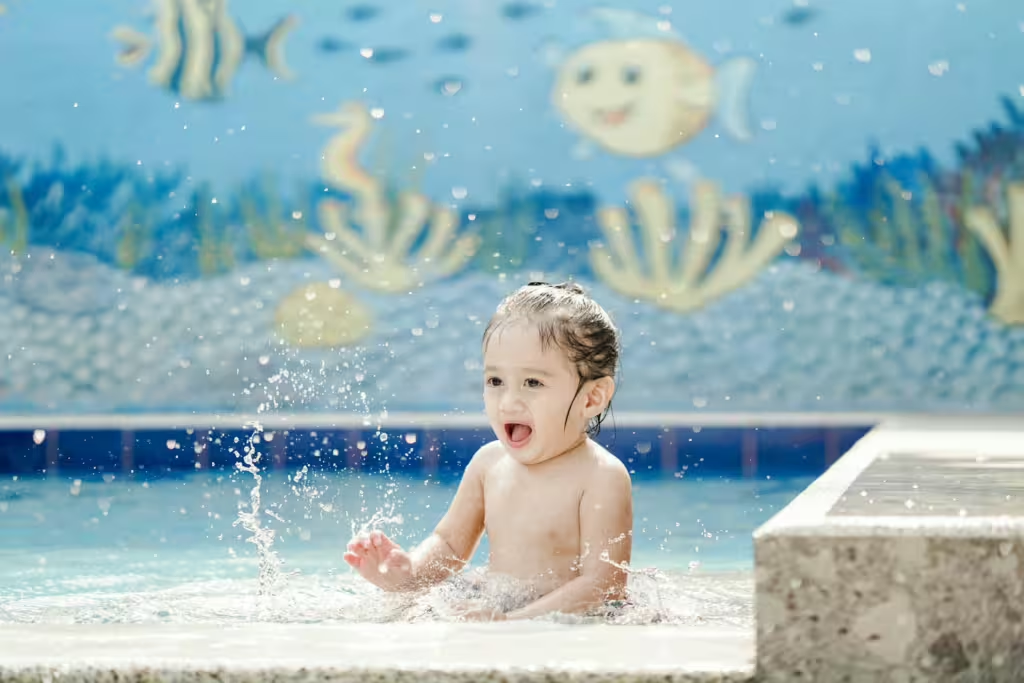
Navigating Competitions and Meets
For many young swimmers, competitions and meets can be as exciting as they are nerve-wracking. Parents are generally sensitive to this but are perfectly positioned to provide emotional support, manage expectations, and help their young swimmer approach competitions with a more positive mindset.
Preparing for Competitions
Parents can help their swimmer prepare mentally and physically for meets in the same way as coaches prepare their swimmers for the challenge itself.
Rest and Recovery: Prior to a meet, ensure that your child is getting enough rest. This should be your priority every day, regardless of the swim meet, but it’s particularly important leading up to big swim days. Rest helps our muscles recover and ensures that our bodies have the energy they are going to need for race day.
Nutrition and Hydration: Parents should provide or otherwise encourage healthy eating habits, including plenty of water and balanced meals. Hydration is particularly important in a sport like swimming, which can be more physically demanding than a lot of parents realize.
Pre-Meet Routines: Try and establish a few healthy, pre-meet routines to help your child feel calm and focused. It could be as simple as stretching, visualizing success, listening to music, or reviewing their goals prior to the swim itself. Whatever you choose, remember that these routines can help them mentally prepare for the stress that comes with competition.
Post-Meet Reflection
After a meet, it’s essential to have a supportive and positive reflection session with your swimmer. Discuss the meet and try to keep focus on what went well. If things didn’t go so well, offer the child constructive feedback without emphasizing the mistakes outright. Encourage them to focus on the positives and on how they can continue to improve for the next big swim.
Being a Positive Role Model
As a parent, you play a vital role in shaping how a child feels about their chosen sport. The attitude you display toward swimming and life in general, matters a great deal to how your child sees the world. Your actions, words, and attitude will greatly influence your child’s approach to swimming.
Demonstrating a Positive Attitude
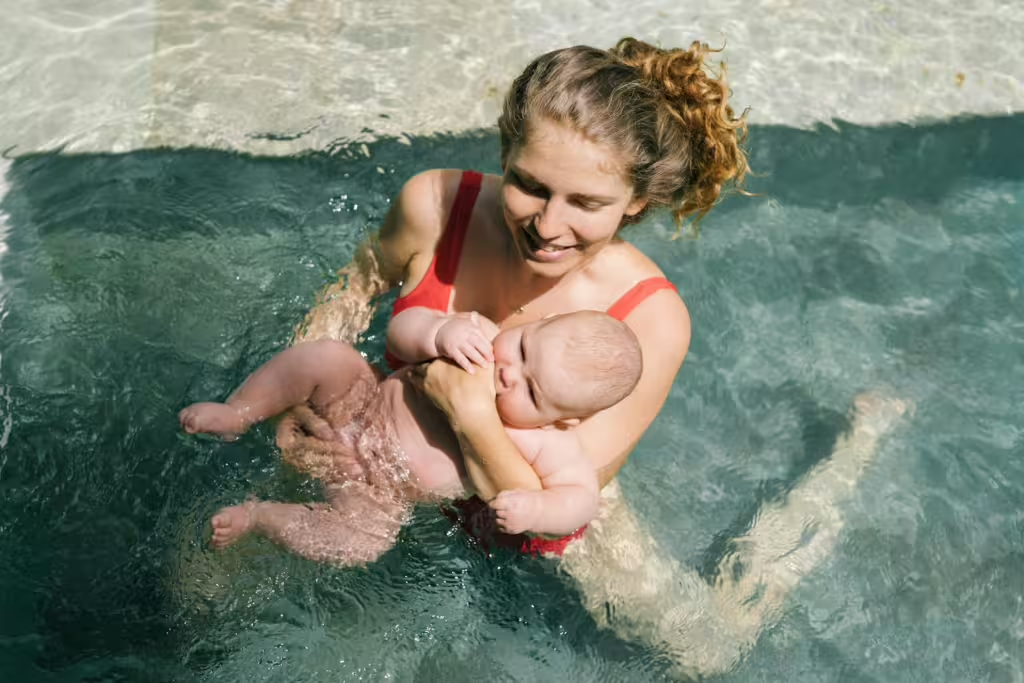
Remember that your own positivity and enthusiasm about a sport will influence how your child feels about it. If you show your child that you value the effort and enjoyment they put into swimming, they will learn to feel the same. Moreover, they will end up caring less about the results of a swim meet and more about the fun they had while they were there. Displaying a supportive attitude, even when things get tough, helps a child develop a resilient mindset and to shake off the stress or frustration of setbacks, like water off a duck’s back!
Encouraging Lifelong Enjoyment
In the end, parents need to remember that swimming is not just about competition—it’s about fostering a lifelong love for water. By modeling a positive attitude and emphasizing the fun and enjoyment that are essentially part and parcel to swimming, parents can help their children develop a positive relationship with the water that will last them a lifetime.
Cultured Athlete Says…
As you can see, swimming offers young athletes a wealth of physical, mental, and emotional benefits. Whether your child is learning to float, to swim, or to race in the water, you are perfectly placed to help them appreciate the situation in a whole new light. Kids will always seek out a parent’s support and encouragement when they play sports, so remember how significant a role you play in their swimming journey. aBy fostering a love for the sport, encouraging consistency, navigating competitions, supporting mental well-being, and being a positive role model, you can help them to succeed and love the water.
As ever, don’t forget to remind yourself that every swimmer’s journey is unique. Your child may struggle, may feel disheartened, or feel anxiety, but that doesn’t mean they are down for the count. With a little help and guidance, your child can get back in the pool and be well on their way to reach their full potential!
Discover more from CulturedAthlete
Subscribe to get the latest posts sent to your email.

